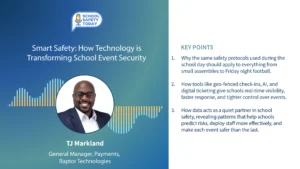UWF Awarded $6 Million Grant to Lead National Cybersecurity Workforce Development Program
The University of West Florida will lead a coalition of 10 institutions designated as National Centers of Academic Excellence in Cybersecurity in establishing a program to address the critical national shortage of qualified cybersecurity professionals in the U.S. The National Security Agency selected UWF to oversee the program, which will launch in the spring and be funded by a two-year, $6 million grant.
“The National Security Agency is excited to have the University of West Florida serve as the coalition lead for a new cybersecurity education and workforce development program,” said Diane M. Janosek, Commandant, National Security Agency’s National Cryptologic School. “Their unique program transitions veterans and first-responders into cybersecurity professionals qualified to shore up critical gaps in our nation’s critical infrastructure sectors.”
The National Cybersecurity Workforce Development Program will focus on recruiting, preparing and placing transitioning military and first responders into cybersecurity work roles in critical infrastructure sectors, including financial services, defense industrial base and energy sectors. The cybersecurity workforce shortage tops 500,000 nationwide according to CyberSeek, a comprehensive cybersecurity workforce analytics website. Industry, government and nonprofit partners will collaborate with UWF and the academic coalition to align the workforce program with critical needs and prepare students for cybersecurity roles.
“Cybersecurity is an exploding field vital to our nation’s protection,” said UWF President Martha D. Saunders. “As a national leader in cybersecurity, UWF is proudly at the forefront of workforce development. We will continue developing talented cybersecurity professionals to protect us against cybercrime.”
The team will establish a nationally scalable certificate-based cybersecurity workforce development program that aligns with the National Initiative for Cybersecurity Education, or NICE, Cybersecurity Workforce Framework. The program will provide flexible pathways that accommodate participants’ diverse aptitudes, education and experience. Students will develop core competencies and skills through stackable and verifiable credentials and certificates. In addition to core knowledge and skills essential for critical infrastructure sector work roles, the program will integrate cutting-edge topics, including artificial intelligence, machine learning and threat intelligence.
“UWF is honored to lead this important national initiative to prepare and expand the cybersecurity workforce for our critical infrastructure sectors,” said Dr. Eman El-Sheikh, director of the UWF Center for Cybersecurity. “We will establish a scalable national cybersecurity workforce program that focuses on employability and can be scaled to include additional work roles, sectors, employers and institutions in future years. Our strong and passionate coalition team aims to solve the cybersecurity workforce crisis once and for all.”
The program will leverage strong partnerships across the financial services, defense and energy sectors to develop a national employers network, and prepare and place participants within those organizations. Recruitment will prioritize veterans and first responders, and eligible students will receive scholarships to participate. The workforce program pathways will be offered across the nation by the 10 CAE designated institutions, via delivery formats including face-to-face, online and hybrid. The program website will provide a one-stop shop to recommend cybersecurity work roles, connect students with CAE-C institutions offering workforce pathways and with employers hiring for those roles.
UWF will lead a team of nationally designated cybersecurity institutions, including Augusta University, Dakota State University, Eastern New Mexico University-Ruidoso, Florida International University, University of Houston, Metropolitan State University, San Antonio College, Cyber Florida at the University of South Florida and the University of Texas at San Antonio.
For more information about the UWF Center for Cybersecurity, visit uwf.edu/cybersecurity. To inquire about student or employer participation in the workforce program, contact cybersecurity@uwf.edu.









